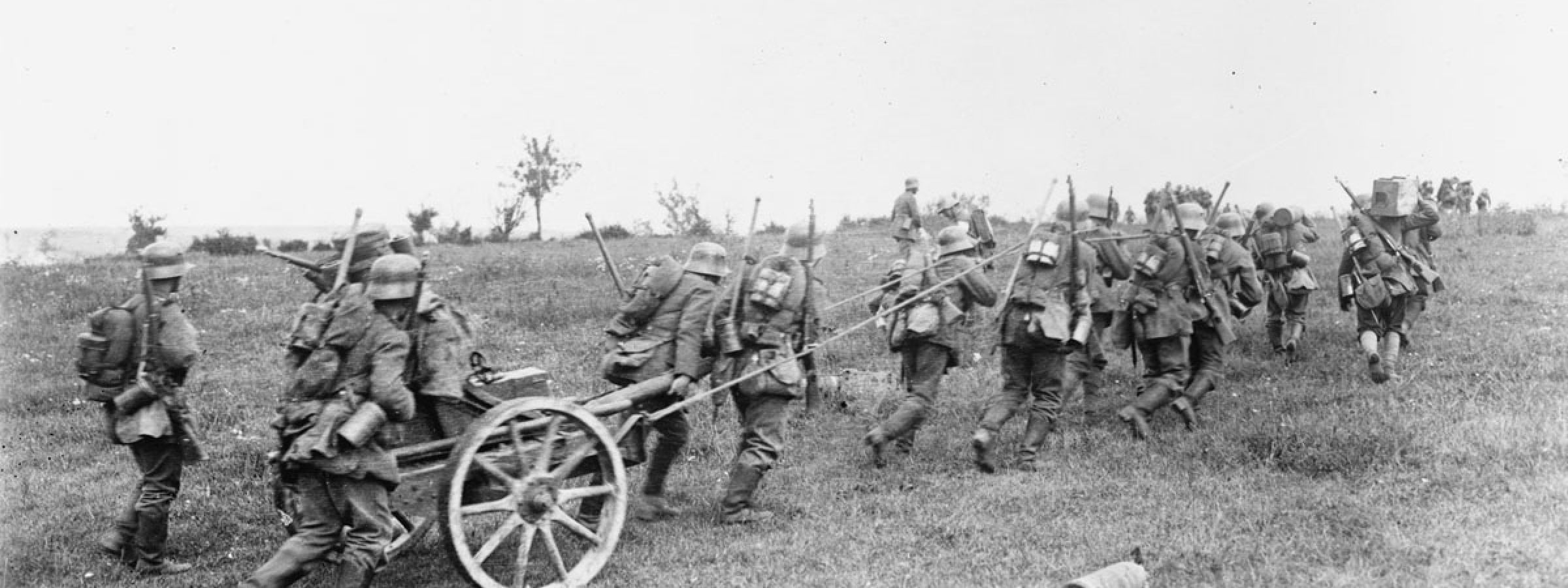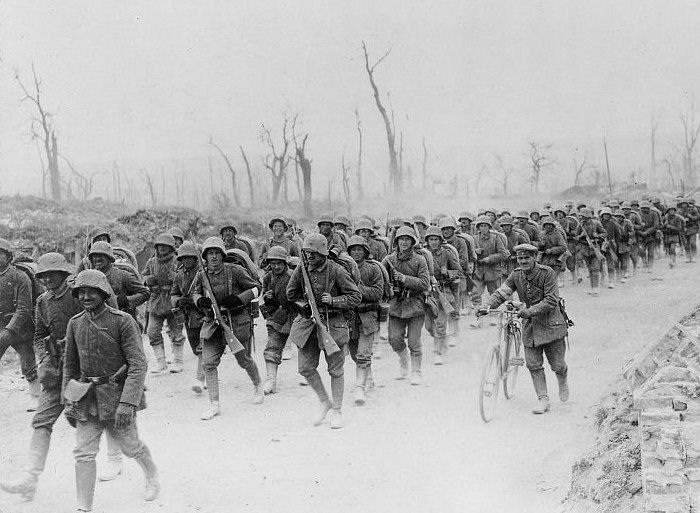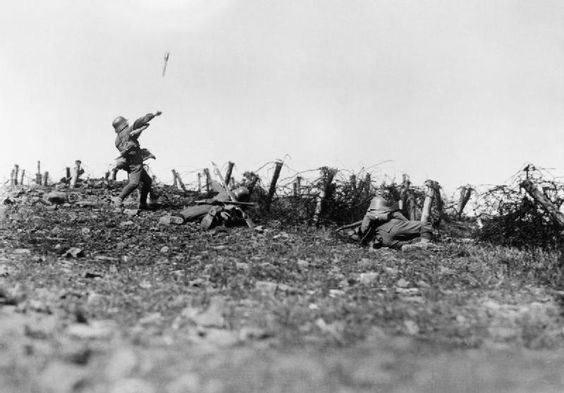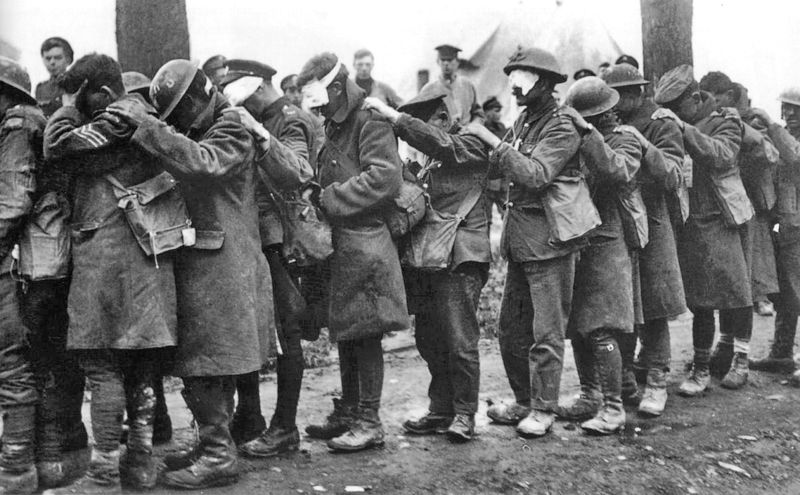Germans in Stronger Position; Allies in Terrible Shape;
The Kaiser Declares Victory.
Special to The Great War Project.
(19 March) In the early morning of March 21st a century ago, the Germans launch the spring offensive that is intended to bring rapid victory to their forces on the Western Front.
The goals, according to historian Martin Gilbert, are first to drive the British army from the River Somme in northern France. And at the same time drive the French forces from the River Aisne.

Germany’s spring offensive, 1918.
Both areas were fought to a stalemate earlier in the war.
Now “the omens for Germany were good,” writes Gilbert. “Russia was out of the war. The German pre-war nightmare of a conflict on two fronts was over.”
The German railway, hitherto tied to the Eastern Front, now is moving men and guns rapidly westward.
The initial German thrust surprises the British. They figure the initial action would come much further south. But they are wrong.
And, their manpower is weak in the face of the German onslaught.
“After three and a half years of fighting,” observes Gilbert, “the manpower shortage was still a factor in the British army’s ability to make war.”

German reserves rush to the front in the German spring offensive, 1918.
In this offensive, a century ago, more than 6,000 heavy German guns unleash their fury, augmented by another 3000 mortars.
Reports Gilbert, “Gas shells were employed to weaken the ability of the British artillery to counter the German barrage.”
The Germans drop as many as two million gas shells on the British lines.
British aircraft are also vastly outnumbered.
Then, the first wave of German infantry attacks.
Reports historian Gilbert, Winston Churchill is visiting one of the frontline headquarters when the assault begins. He is only just able to escape the initial artillery barrage, before the Germans advance four-and-a-half miles and take 21,000 British prisoners.

German stormtroopers attack in spring offensive.
“Two days later, the Germans bombard Paris, using three long distance artillery guns especially manufactured for just such an operation,” Gilbert writes. The British are forced to retreat to the Somme.
The German Kaiser declares “the battle won, the English utterly defeated.”
“The Allies had every cause to be alarmed by the speed and scale of the German advance.”
And as for the vast army of Americans expected to turn the tide, they are still not ready to enter the battle lines.
British prime minister David Lloyd George telegraphs the British ambassador in Washington, “telling him to explain to President Woodrow Wilson the situation is undoubtedly critical and if America delays now she may be too late.”
Wilson receives the British ambassador immediately and tells him he will “do his damnedest.”
Day one of this German spring offensive “had undoubtedly been a German victory,” observes war historian John Keegan, although the total of German dead, more than 10,000, exceeded that of the British, as did the number of wounded – nearly 29,000 Germans against 10,000 British.

German gas victims in 1918 spring offensive.
Concludes historian Gary Mead, “The Allies should have been better prepared for this offensive than they were. After all they had good intelligence as to what the Germans were planning.
It is the Germans’ greatest gamble of the war.
They throw effectively everything into the battle, believing this too is their last chance for victory before the Americans arrive.

Great reporting again. Thanks, Mike. – Alex
The caption in the bottom photo is ambiguous. The soldiers appear to be British victims of German gas shells. A casual reader might conclude from the caption that they are German soldiers.
My grandfather was with the 51st Highland Division and in command of a forward OP that morning. He reported what he could see, which wasn’t much, until his last report to brigade the “..they are coming over in thousands..” at approximately 11:00am when his line went dead. He and his team of four were all taken prisoner. He saw out the war in a prison in Graudenz in what was yyhrn Prussia, now eastern Poland.